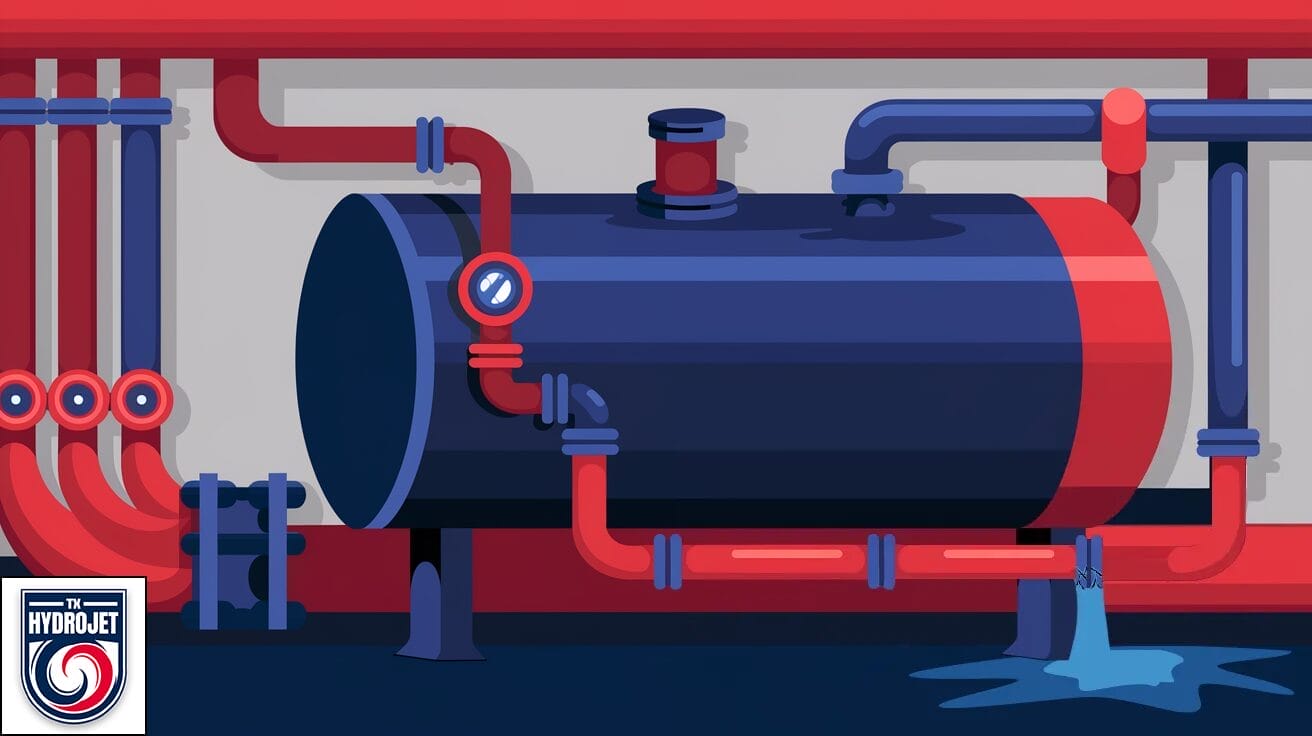Why Is My Boiler Leaking Water?

A leaking boiler can be a homeowner’s nightmare, causing concern and potentially significant damage if left unaddressed. Boiler leaks often stem from various issues, including corrosion of internal components, pressure problems, or wear and tear on crucial parts. Understanding the root causes and knowing how to respond can help you maintain your heating system’s efficiency and longevity.
- Corroded Components
- High Boiler Pressure
- Faulty Heat Exchanger
- Loose Joints And Fittings
- Worn Pump Seals
1. Corroded Components
Corrosion is a common culprit behind boiler leaks. Over time, the metal components within your boiler can deteriorate due to exposure to water and chemicals. This corrosion can compromise the integrity of seals around pipe joints, leading to leaks. While a professional can often replace individual corroded parts, extensive corrosion might necessitate a complete boiler replacement to ensure safe and efficient operation.
2. High Boiler Pressure
Excessive pressure within your boiler system can force water to escape through weak points. If you notice your boiler leaking, check the pressure gauge. High readings may indicate that the pressure relief valve is attempting to release excess water to normalize the system pressure. This safety mechanism can result in visible water drips from your boiler, signaling the need for pressure adjustment or valve inspection.
3. Faulty Heat Exchanger
A malfunctioning heat exchanger often manifests as water leaking from the bottom of your boiler. While you may not directly observe the heat exchanger leaking, the presence of water underneath your unit is a telltale sign. Given the critical role of the heat exchanger in your boiler’s operation, it’s crucial to have a qualified technician assess the situation to determine if this component is indeed the source of the leak.
4. Loose Joints And Fittings
The repeated heating and cooling cycles your boiler undergoes can cause joints and pipe connections to loosen over time. As water expands when heated and contracts when cooled, these fluctuations can gradually affect the tightness of fittings. Addressing this issue may be as simple as tightening the affected loose joints and connections, though it’s best to have a professional perform this task to ensure proper adjustment without causing further damage.
5. Worn Pump Seals
Your boiler’s pump plays a crucial role in circulating water throughout your home’s heating system. If the pump seals wear out, water can escape instead of being properly circulated. This type of leak requires prompt attention from a professional technician who can replace both the worn seals and the pump if necessary, restoring your system’s efficiency and preventing further water loss.
Is A Boiler Leaking Water Dangerous?
A leaking boiler is indeed a serious issue that should be treated as an emergency. It poses significant risks to your household or business, depending on the underlying cause. The dangers can range from electrical hazards and potential gas leaks to structural damage from water accumulation. Never attempt to simply contain the leak with a bucket; this approach ignores the root problem and can lead to more severe consequences over time. As highlighted in our Boiler Troubleshooting Guide, a boiler leaking water should always be taken seriously as one doesn’t know what exactly is causing the leak.
What To Do When A Boiler Is Leaking?
Discovering a leaking boiler can be alarming, but taking swift and appropriate action is crucial to minimize damage and ensure safety. Therefore, it’s essential to act quickly and methodically. Here are the steps you should take if you find your boiler leaking:
- Switch Off The Water Supply
- Drain The System
- Clean Up Any Water From The Leak
- Call A Professional Plumber
Addressing a boiler leak promptly is crucial for maintaining your home’s or business’ safety and preventing boiler explosions. If you’re in the Houston area, contact TX Hydrojet. Our team is always on standby to assist you with our Houston boiler repair services. We have the experience to quickly locate the source of any leaks and provide efficient solutions.


